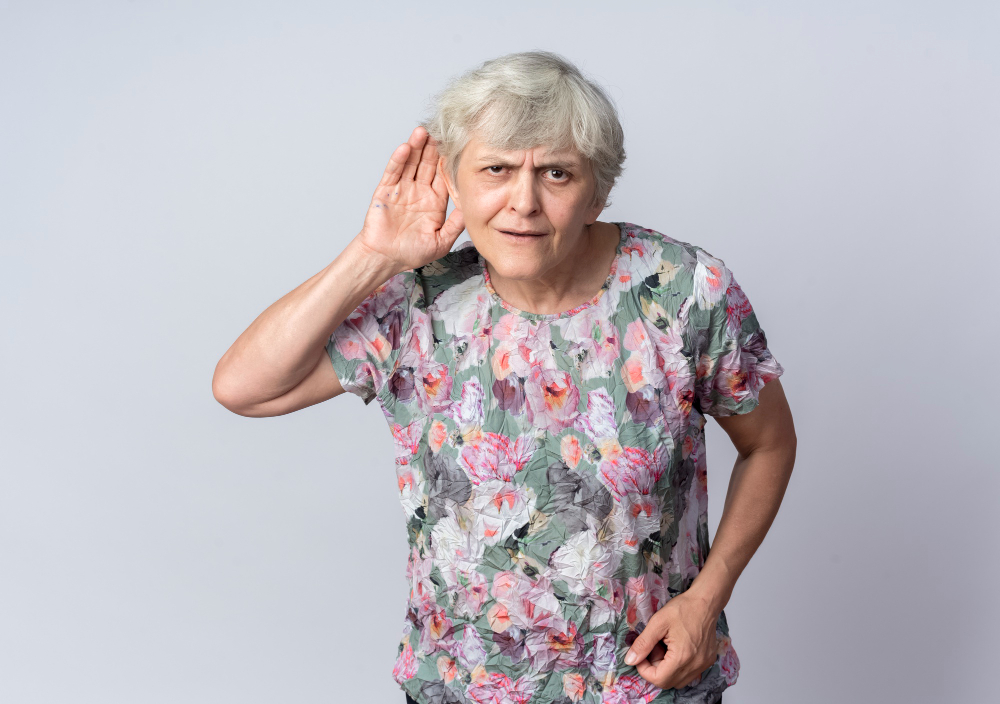Hearing loss in the elderly is a common problem that is often overlooked. One of the most common forms of hearing loss in the elderly is presbycusis. Understanding what presbycusis is, its causes, risk factors, symptoms and treatment is crucial to providing proper care for the elderly who experience it.
What is Presbycusis?
Presbycusis is a hearing loss that occurs as a result of natural aging. The condition generally starts in your 60s and gets worse with age. Presbycusis affects both ears and causes difficulty in hearing high-frequency sounds, such as women's or children's voices, as well as difficulty understanding conversations in noisy environments.
Causes of Presbycusis
Presbycusis is caused by various physiological changes that occur in the auditory system as we age. Some of the main causes include:
- Degeneration of hair cells in the cochlea: These cells are responsible for converting sound waves into electrical signals that are sent to the brain. As we age, these hair cells get damaged or die.
- Plaque buildup in the blood vessels: This can reduce blood flow to the inner ear, causing damage to the hearing structures.
- Damage to the auditory nerve: The nerves that connect the ear to the brain can deteriorate over time.
- Noise exposure: this condition can be caused by noise exposure that damages the fragility of ear hair cells that play a role in the hearing process.
Risk Factors for Presbycusis
Some risk factors that may increase the likelihood of presbycusis include:
- Age: The biggest risk factor. Almost everyone will experience hearing loss as they age.
- Genetics: A family history of hearing loss may increase the risk.
- Exposure to loud noises: Prolonged exposure to loud noises, either from the work environment or the habit of listening to music at high volumes.
- Medical conditions: Diseases such as diabetes, hypertension, and cardiovascular disease can contribute to presbycusis.
- Medications: Some medications, such as certain antibiotics and chemotherapy drugs, can damage hearing.
Presbycusis Symptoms
Presbycusis symptoms develop gradually and can include:
- Difficulty hearing conversations, especially in noisy environments.
- Difficulty hearing voices with high pitches.
- Often asking others to repeat their words.
- Experiencing tinnitus (buzzing or ringing in the ears).
- Feeling that other people's speech sounds like mumbling or slurring.
Presbycusis Treatment
While presbycusis cannot be cured, there are several treatment methods that can help manage symptoms and improve the quality of life of sufferers:
- Hearing aids: These devices can amplify sounds and help people hear better.
- Hearing therapy: This involves training to improve the ability to hear and understand conversations.
- Koklea implant: In severe cases, this electronic device can be implanted in the ear to help send sound signals directly to the auditory nerve.
- Lifestyle changes: Avoiding exposure to loud noises, maintaining a healthy diet, and managing existing medical conditions can help prevent further hearing loss.
Conclusion
Hearing loss in the elderly, specifically presbycusis, is a common problem that can significantly affect quality of life. By understanding the causes, risk factors, symptoms and treatment of presbycusis, we can provide better care and support for older adults with this condition. Early detection and proper treatment can help maintain hearing ability and improve social interaction and emotional well-being of the elderly. (Aq/MKK)









